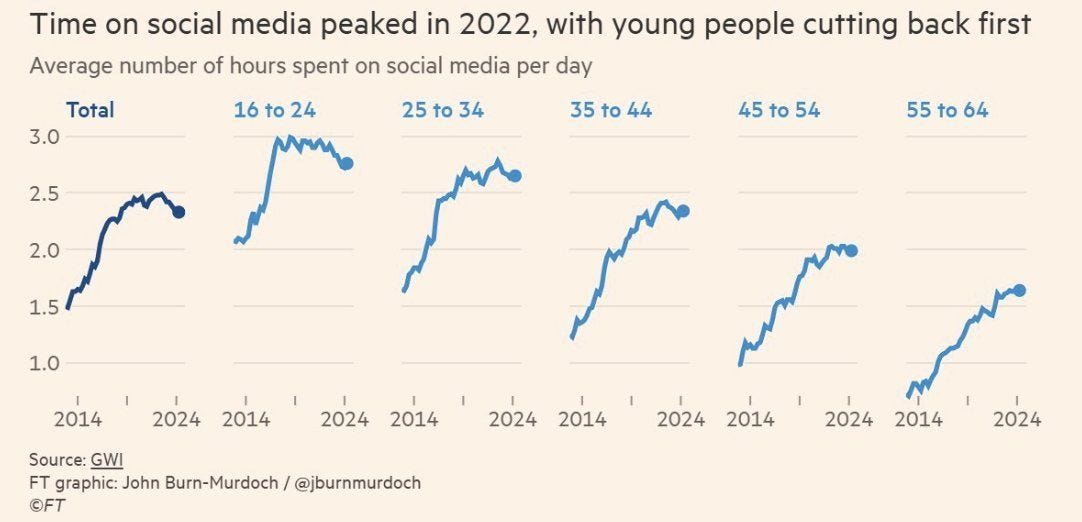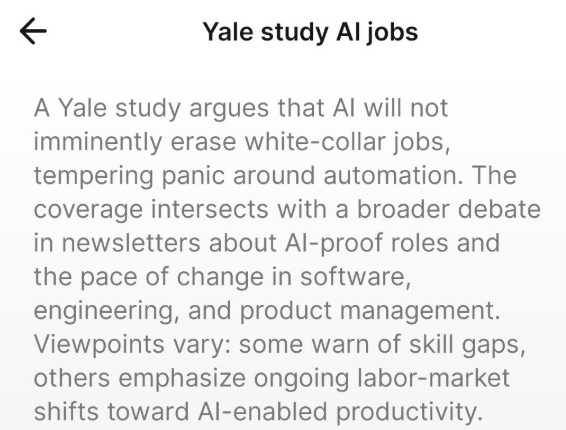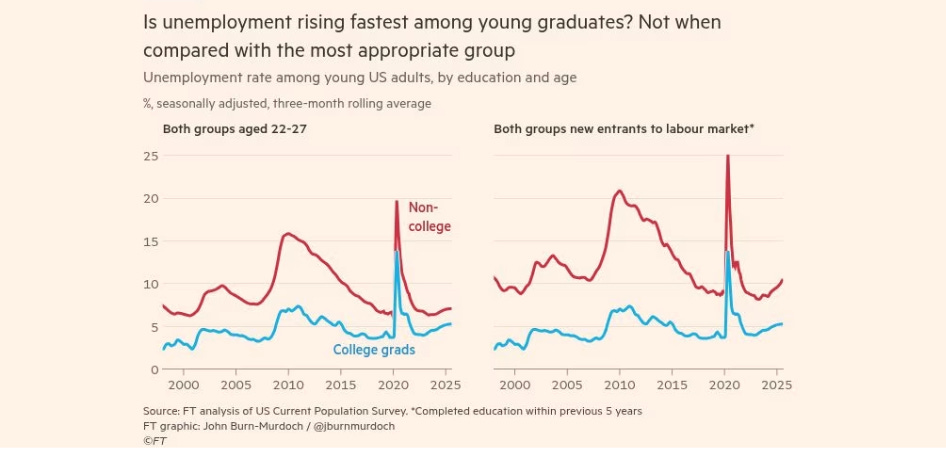AI and the Future of (Non-existent) Work
New perspectives on AI's impact on jobs are emerging. Even as the labor market craters in the U.S. in the Autumn of 2025.
Image credit: https://cartography-of-generative-ai.net/. The Barcelonese artist collective Estampa has done an outstanding job with The Cartography of Generative AI, a map of the intense human labor, materials, and powerful narratives shaping this technology and its effects on the world1.
If you consider the impacts and role of AI on the future of work important, why not share this piece?
Good Morning,
Every since in late 2022 a chatbot called ChatGPT went live, Silicon Valley have been trying to convince us that Generative AI was going to change everything, including our jobs and the future of work? Three years later one might have expected a bigger impact on the creation of new jobs, our careers and on the future of work? A full three years later, we can’t even attribute jobs being disrupted to AI.
If Gen AI was a General Purpose Technology, we would expect to see a bigger impact. So where is it? A general purpose technology (GPT) is a technology with the potential to significantly alter the economy and society by enabling innovation across multiple sectors.
While in the insular technology industry, AI is changing the role of titles like Product Manager and junior Software Engineer SWE to some extent with various pilots, out in the real world it doesn’t seem like AI has even had much impact on even the demand for entry level jobs in a tightening labor market (that has been often claimed). In the coming years, a soaring public debt globally at the intersection of doubts about the sustainability of AI investments might balloon into a real problem.
So instead of Gen AI displacing workers or creating new valuable jobs altogether, what we are starting to see are warning signs about the use of chatbots, young people leaving social media (exasperated by synthetic content) and rumors of dead internet theory (DIT) giving way to vast quantities of “AI slop” and workslop churning out in algorithmic feeds to our AI agents (assuming we have left network x, y and z). What’s wrong with that picture? So what does this have to do with jobs and the future of work?
People are leaving social media apps with Gen AI slop hurting value
Image credit: Have we passed the peak of social media (October 2nd, 2025 Financial Times).
According to the Budget Lab at Yale new study (warning: the sample size is small) we might be exaggerating the challenging widespread fears about the impact of artificial intelligence on employment. The Budget Lab at Yale is a non-partisan policy research center that provides in-depth analysis of federal policy proposals for the American economy.
Related to our topic, “when the FT compared young graduates’ unemployment with other first-time entrants into the job market regardless of age, they found that “those without a degree are actually having a much harder time of it,” no matter their age. The slowdown is about (in)experience rather than age.” - according to our featured writer today: Azeem Azhar.
AI isn’t the primary culprit to the entry level jobs freeze, a tightening labor market is. 2026 might not be a great time to graduate College by the looks of it, and neither was 2025 as you might have heard, but for the majority of jobs or degrees, it has next to nothing to do with AI.
We are seeing a much tighter labor market in a jobs data abyss (since the U.S. Government is still in shutdown). Though the Trump Administration thinks this is a good time to do massive layoffs. However what AI is doing is changing the tasks we do at work more than it’s creating new valuable jobs (ROI for civilization) or even disrupting old ones (real automation). That doesn’t sound like an “exponential” technology to me. If you prefer a more gated BigTech consensus driven view, you might like Azeem’s Newsletter:
Introducing: The Exponential View
The Yale study is super interesting if the future of work is a topic you are tracking, especially as it relates to AI. Many economists and influencers are employed to promote certain narratives and points of view but The Budget Lab at Yale seems like a more trustworthy source that isn’t profiteering on slant or sentiment here or chasing a headline. While economists are inherently bad at predicting the future (as we have seen in technological shifts around automation & jobs multiple times since the internet was born), they are good at number crunching of the existing data.
So what is the data actually saying? We explore AI’s impact on the labor market, jobs and future of work.
If you enjoy this topic, read the archives for more.








